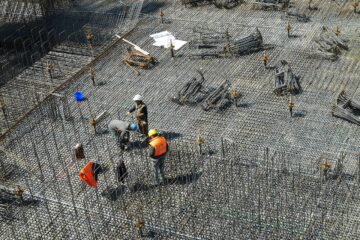![]()
Introduction:
This Case is about to put a restraint on arbitrary use of powers in the form of State legislation by the Maharashtra Government by the Hon’ble Supreme Court of India exercising their power of Judicial review for the purpose of struck down the provisions of Maharashtra Prohibition of Obscene Dance and Protection of Dignity of Women (Working in that) Act, 2016 and Maharashtra Prohibition of Obscene Dance and Protection of Dignity of Women (Working in that) Rules 2016 the objective of which is to put at peril not only the businesses of thousands of Owners of Bars in Maharashtra but also the female workers working therein to have a better life, to live with human dignity.
Brief Facts
In the first place, in 2005 the Maharashtra government had forced a restriction on move exhibitions in bars except for lodgings appraised in 3 stars or more, as accommodated, under segment 33 An and 33 B of the Bombay Police Act. The Public judicious offered was that these exhibitions were profane and ethically degenerate. All the move execution licenses were dropped with the quick impact bringing about joblessness of approx. 75,000 ladies laborers which drove the influenced gatherings to document petitions in the Bombay High court. The high court gave judgment against the administration which prompted bid in the Supreme Court. In 10 July 2013 the Supreme Court attested the high court’s structure.
However, the respondents as opposed to submitting to with the prevalent court’s organization, had quickly and shrewdly think of the Maharashtra Prohibition of Obscene Dance in Hotels, Restaurants and Bar Rooms and Protection of Dignity of Women (Working in that) Act, 2016 and the Maharashtra Prohibition of Obscene Dance in Hotels, Restaurants and Bar Rooms and Protection of Dignity of Women (Working in that) Rules, 2016 which had arrangements on indistinguishable lines from that of the segment 33A and 33B of the Bombay Police Act.
The arrangements of the said Act and the conditions referenced in the said Rules were rigid to the point that it was unimaginable for anybody to satisfy them. This brought about the circumstance that till date no permit had been given to any of the foundations. Along these lines, three writ petitions were recorded under Article 32 of the Constitution of India, to be specific, WRIT PETITION (CIVIL) NO. 576 OF 2016, WRIT PETITION (CIVIL) NO. 24 OF 2017 and WRIT PETITION (CIVIL) NO. 119 OF 2017 under the watchful eye of the Supreme Court of India testing the equivalent. Since this cluster of three Writ Petitions had raised comparative issues and supplications, they were heard together and arranged by a typical judgment.
Issues
Following areas of the Maharashtra Prohibition of Obscene Dance in Hotels, Restaurants and Bar Rooms and Protection of Dignity of Women (Working in that) Act, 2016 and states of Rule 3 of the Maharashtra Prohibition of Obscene Dance in Hotels, Restaurants and Bar Rooms and Protection of Dignity of Women (Working in that) Rules, 2016 were tested as being violative of essential privileges of the solicitors under article 14, 15, 19(1)(a), 19(1)(g) and 21 of the Constitution of India:-
Act:
- Section 2(8)(i): It was worried about the meaning of ‘disgusting move’. The issue was that it incorporates ‘a move which is planned distinctly to stimulate the salacious enthusiasm of the crowd’ which was absolutely a free articulation.
- Section 6(4): It banished the award of permit under the Act in regard of a spot where permit for discotheque or symphony is allowed.
- Section 8(2): It gave discipline to negating segment 6(4).
- Section 8(4): It made tossing or showering coins, cash notes or any article or anything which can be adapted on the stage or giving over by and by such things, and so forth to an artist as an offence.
Rules:
1. Part A
Condition 2: It expressed that one phase ought not be under 10ft. x 12 ft. in size in pub, with non-straightforward segment between inn, eatery and pub territory. In the event that the candidate is holding grant room permit, at that point there will be fixed segment between the license room and move room.
Condition 11: It expressed that such move bars ought to be at the separation of 1 km from the instructive and strict establishments.
2. Part B
Condition 2: It expressed that working ladies, the artists and servers/servers must be utilized under a composed agreement on a month to month pay to be stored in their financial balances.
Condition 6: It forestalled the client to toss or shower coins, cash notes or any article or anything which can be adapted on the phase toward the artist.
Condition 9: it expresses that pub where moves were organized will be open for open just between 6.00 P.M. to 11.30 P.M.
Condition 12: It expressed that no mixed refreshment will be served in the saloon where moves are organized.
Condition 16: It expressed that the licensee will guarantee that the representatives have no criminal precursors.
Condition 17: It expressed that the licensee will not permit any adjustment or change in the premises without the authorization of the permitting authority.
Condition 20: It expressed that the Licensee will guarantee that the zones which fall under the meaning of open spot will be secured by CCTV cameras and recording will be protected for 30 days.
Significant Arguments by the Petitioner
- Section 6(4) of the Act was violative of article 14 and 19 (1) of the Constitution of India. The imply behind this arrangement was to see that there would not be a permit for a spot, both for move bars and discotheque or ensemble, simultaneously. It was presented that there was no levelheaded behind such an arrangement dependent on comprehensible differentia.
- It was contended that disgusting move that adds up to vulgarity is as of now an offense under Section 294 of the Indian Penal Code (IPC) and is culpable with detainment which may reach out to a quarter of a year. It was additionally contended that such an arrangement (area 6(4) of the Act) was not just discretionary and voilative of Article 14, there was an unmistakable clash between the focal law (for example the IPC) and the State Act (the upbraided Act). In this way, the segment of the censured demonstration should have been struck down.
- It was contended that the denial under area 8(4) was just qua the artists and not vocalists or servers. Dispute was that giving such things to an artist just adds up to tipping her on valuation for her exhibition which was a similar thing as valuing an artist for her presentation or a server for her administration and there was literally nothing incorrectly about it and such a demonstration can’t be made an offense. It was, in this manner, plainly self-assertive and violative of Article 14.
- Condition no. 2 of section A was tested to be in opposition to the request dated March 02, 2016 went in Writ Petition (Civil) No. 793 of 2014.
- It was contended that condition 11 of section A was impractical to be satisfied in light of the fact that in a clogged city like Mumbai where instructive and strict organizations existed inside 1 k.m. from every single structure.
- Concerning No.6 it was contended that the State can’t force a condition that a measure of tip must be essentially included the bill.
- Timings of the move bars specified in Condition No. 9 of Part B was tested on the ground that it doesn’t fill any need. Additionally, then again, discotheque or symphony and alcohol bars are permitted to be open till 01:30 a.m.
- Condition 20 of part B was contended on the ground that prerequisite for having CCTV cameras at such places will have chilling impact, which was likewise violative of the privilege to protection that is currently announced as a major right in K.S. Puttaswamy and Another v. Association of India and Others (2017 10 S.C.C 1).
Important Arguments by the Respondent
- Section 2(8) of the Act which characterizes ‘foul move’ was guarded by contending that the articulation ‘lascivious intrigue’ has a clear implication in word reference and this articulation discovers nearness in Section 292 of the IPC also which makes vulgarity as an offense.
- It was contended that Section 8(2) must be perused alongside Section 8(1) of the Act.
Section 8(1) makes the Act of utilizing the spot in repudiation of Section 3 as culpable offense. In that sense, it was contended, Section 8(2) is a different offense endorsed in a different law that is under the Maharashtra Act which is unmistakable from Section 292 IPC. - In regard of Section 8(4), it was guarded with the accommodation that it involves social ethos of the general public. In this vein, it was additionally said that such an arrangement was, that showering cash is a technique for prompting which must be checked. As indicated by the respondents, Section 354A of IPC which is an ethical code of the general public and the State is just endeavoring to safeguard this ethical code by instituting such an arrangement.
- With respect to No. 11 of Part A it was contended that it involves strategy and is the right of the official to fix the separation.
- Concerning No. 2 of Part B, accommodation of the respondent was that it depends on financial reality that there is an abuse of such common laborers and, along these lines, the standard producer appropriately set out the condition that the working ladies must be utilized under a composed agreement on a month to month pay which should be kept in their ledgers.
- As to No. 20 of Part B, explicit accommodation was that privilege to security reaches a conclusion when there is a chance of commission of attempting and this statement planned for forestalling such a wrongdoing.
Rationale
Supreme Court partially upheld the validity of the Maharashtra Prohibition of Obscene Dance in Hotels, Restaurant and Bar Rooms and Protection of Dignity of Women (Working therein) Act, 2016 and the Rules made thereunder, the bench of Dr. AK Sikri and Ashok Bhushan held that the State must have an “open mind” in matters relating to staging dance performances in dance bars. It said:
“State cannot take exception to staging dance performances per se. It appears from the history of legislative amendments made from time to time that the respondents have somehow developed the notion that such performances in the dance bars do not have moralistic basis.”
Judgement
- Considering the choice of the court in Raj Kapoor and Ors. v. State and Ors. (1980 SCR (1)1081) the court held that it can’t be said that a move which is planned for stirring the salacious enthusiasm of the crowd is dubious term, unequipped for positive undertone. The Court stated, “It is, all the more in this way, when Section 292 IPC especially utilizes this articulation in the considering arrangement identifying with profanity”. In this way area 2(8)(i) stood substantial.
- Section 6(4) in the court’s view was absolutely self-assertive and nonsensical and had no nexus with the alleged reason looked to be accomplished. It was accordingly stuck down as being illegal.
- The offense under Section 8(2) was proclaimed to some degree unique in relation to the offense that is specified in Section 294 IPC. Hence, this area was held to be substantial.
- Area 8(4) must be perused with condition Nos. 6, 7 and 8 of Part B. It was held that whatever cash, any energy about any move execution, must be given by giving over by and by and not by tossing or showering such coins and so forth. In this manner, arrangement for tossing or showering of cash stood legitimate. Nonetheless, including such tips thereto in the bills would prevent legitimate beneficiary from securing the equivalent. Further, State can’t force a specific way of tipping as it is totally an issue between a business and entertainer from one viewpoint and the entertainer and the guest then again. In this way, the arrangement of giving the tips just by including the equivalent in the bills was struck down.
- A condition like Condition 2 Part A, was struck somewhere near this Court prior. Indeed, even something else, there was discernment or avocation in forcing such a condition hence, this arrangement was again struck down.
- To the extent condition No.11 of Part A was concerned it was held to be discretionary and preposterous and was subdued, with freedom to the respondents to endorse the good ways from instructive and strict foundations, which is sensible and functional.
- With respect to Condition 2 section B the court maintained the arrangement identifying with going into a composed agreement just as keeping of the compensation in the financial balances however struck down the state of utilizing such people on month to month pay since it forces limitation upon such workers and encroaches their privilege under Article 19(1)(g).
- The court didn’t discover the planning referenced in condition No. 9 of Part B to be clearly preposterous. The ground that different foundations are open till late doesn’t limit the intensity of State to confine the hour of move exhibitions till 11:30 pm. Also, suitable time of five and half hours was given for such exhibitions. This condition was along these lines maintained.
- The Court subdued Condition No. 12 of Part B expressing that it is absolutely lopsided, irrational and subjective. The court was not persuaded by the respondent’s contention that people subsequent to expending liquor would act mischievously with the artists. Besides, courts have likewise prior put aside a similar conflict when applied to the pubs and eateries.
- The Court likewise put aside Condition No. 20 of Part B that orders introducing of CCTV Cameras as this again was absolutely wrong and added up to attack of security and was, along these lines, violative of Articles 14, 19(1)(a) and 21 of the Constitution as held in K.S. Puttaswamy case (2017 10 S.C.C 1).
Conclusion
This Judgment is a perfect mix of going in both the directions. The judiciary settles the case in favor of both the parties by granting certain rights in favor of Petitioners as well as to the respondents. Decree is not passed in totality in favor of one party and both the parties have given some kind of duties and directions in respect of each other.



1 Comment
Indian Hotel and Restaurant Association & Anr. V. The State of Maharashtra & Ors. - The Amikus Qriae · 30/10/2023 at 1:57 AM
[…] 4. Rishabh Jain – https://bnwjournal.com/2020/10/07/indian-hotel-and-restaurant-association-ahar-anr-v-the-state-of-ma… […]